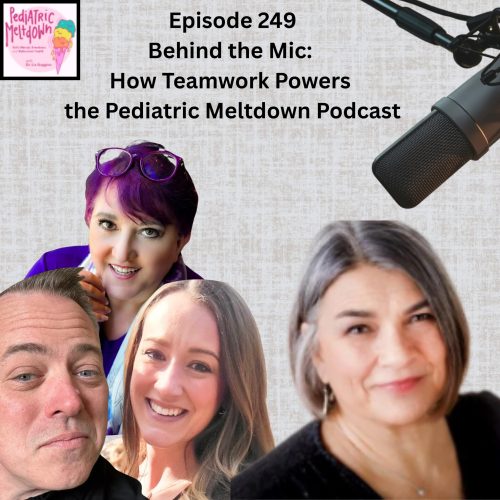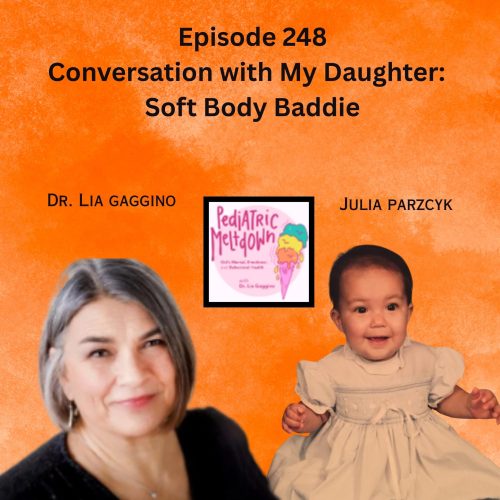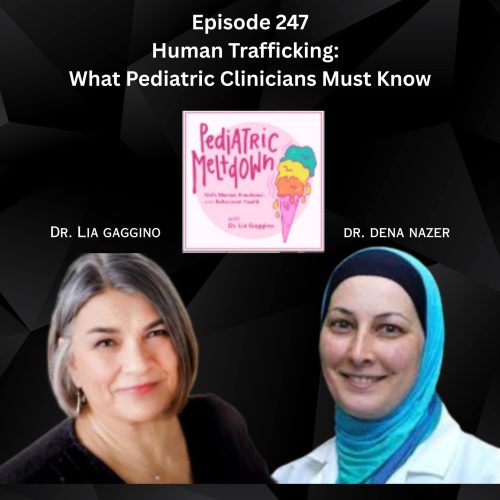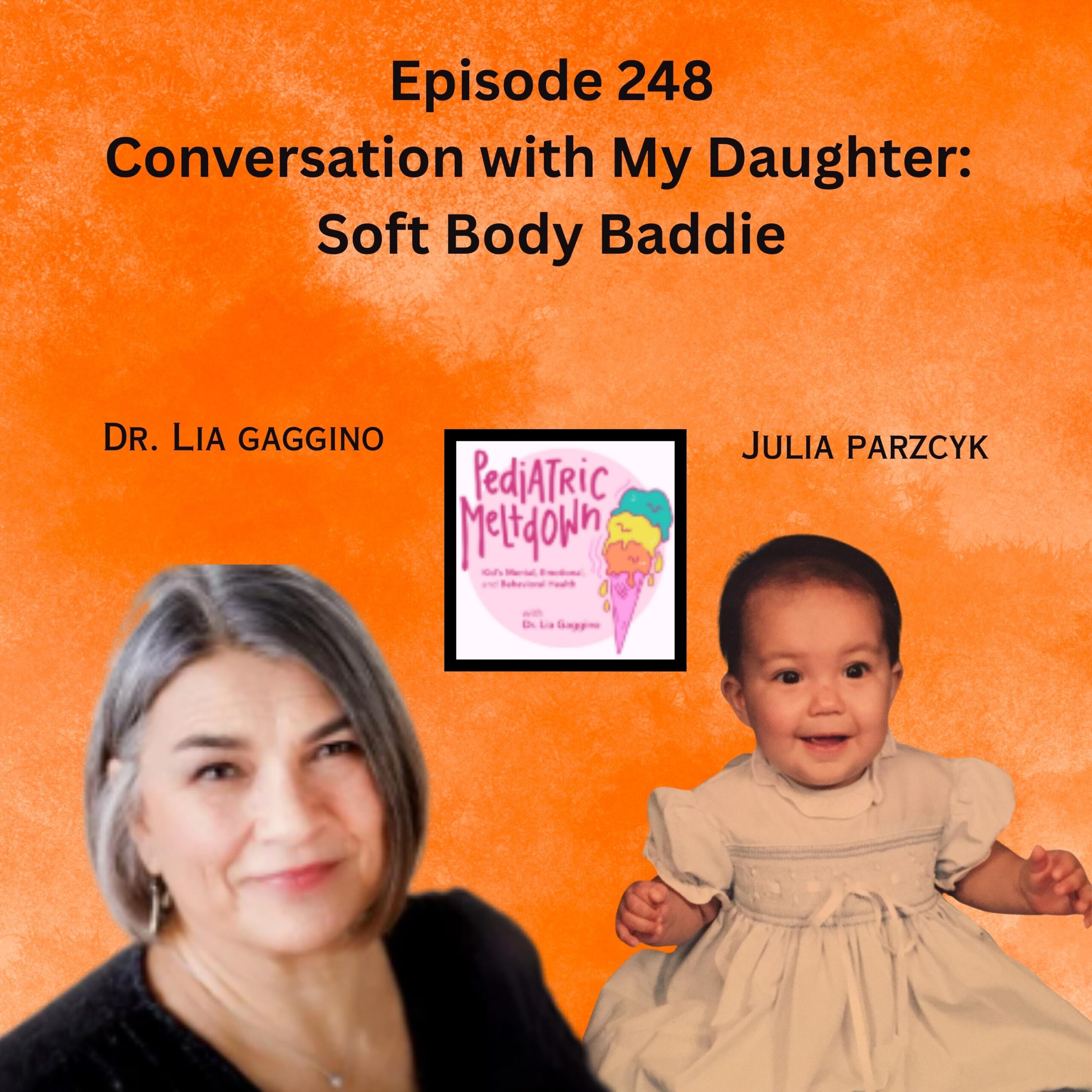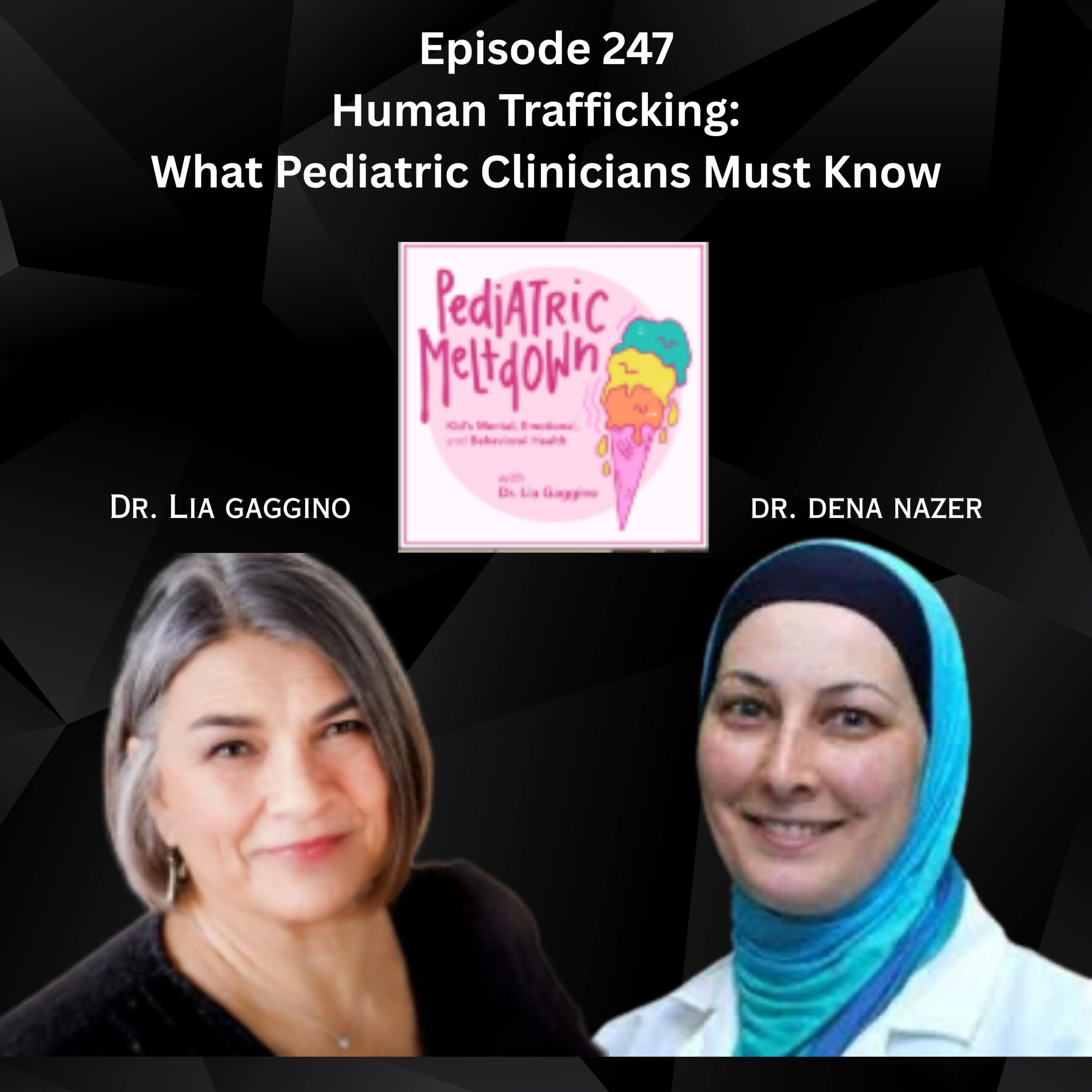Today’s episode is an encore of an interview I did with Dr. Lisa Horowitz last fall. Suicide is the second leading cause of death in youth 15-24. Dr. Horowitz talks about how pediatricians can incorporate the Ask Suicide Screening Questions (ASQ) screening tool into their practice to help identify children and adolescents at risk of suicide and to link them to coordinated care.
Dr. Lisa Horowitz is a Staff Scientist and Pediatric Psychologist at the Nation Institute of Mental Health Intermural Research Program at NIMH. The major focus of her research has been detection of suicide risk in the medical setting. She is the head PI in several ‘Suicide Prevention Protocols’ using the ASQ Toolkit. She assists hospitals, schools, and pediatric centers in implementing Suicide Screening of patients.
The Hotline for Suicide Prevention is 1-800-273-8255. Crisis Text Line: text HOME to 741741
[00:01 – 10:54] Dr. Lisa Horowitz Shares Her Story
- I introduce my guest, Dr. Lisa Horowitz
- Dr. Horowitz shares a bit of her background
- How Dr. Horowitz got into her line of work
- Realizing the need for developing a suicide screening tool
- The Creation of ASQ
[10:55 – 22:25] How To Implement Suicide Risk Screening When It’s Outside of Your Medical Training
- The pushback Dr. Horowitz experienced when trying to implement Ask Suicide Screening Questions (ASQ) Toolkit
- Creating a script for Nurses or practitioners that will help parents and patients feel comfortable
- Using appropriate language when checking up on patient’s mental health
- Doctor’s fear about patient’s screening positive for suicide risk
[22:26 – 49:48] How What Dr. Horowitz Did in the Emergency Room Translates To Primary Care
- Despite suicide being the 2nd leading cause of death, most health care professionals are not trained in dealing with it
- Dr. Horowitz tells a pediatrician superhero story about Dr. Ted Abernathy
- “He’s not worried about all the ones he’s going to catch. He’s worried about the ones he’s going to miss.”
- What a practitioner should do if they get a positive screening
- Conducting the 2nd tier safety assessment
- Creating safety plans for the patient with the ASQ toolkit
- Having experts with mental health experience and training in the clinic is ideal
- Partnering with mental health professionals or partnering with your local crisis hotline
- Having the patient return to your office in a few days until you can secure them with a mental health professional
- Asking about access to lethal means particularly firearms
- Disrupting at-risk patient’s means of suicide can be a big lifesaver
- Fostering resilience
- Checking your own emotional regulation
[49:48 – 00:00] Closing Segment
- Pediatricians can make a difference
- To learn more about the ASQ, please refer to the link below
- Final Takeaways:
- The ASQ is a lot more sensitive than the PHQ9
- It is OK to ask parents to step outside the room
- It’s a myth that asking will put suicidal ideas who weren’t thinking about suicide
- This can be implemented in a primary care setting; Listen to next week’s episode on how it can be implemented in a way it makes sense
- We can make a difference by using these 5 questions
- Never forget to ask about lethal means of access.
Tweetable Quotes:
“If you’re really thinking, ‘I went into medicine to save lives.’ Suicide prevention is saving lives.” – Dr. Lia Gaggino
“People are so worried about the liability of asking [about suicide risk]. What about the liability if you don’t ask.” – Dr. Lisa Horowitz
“Let this be a call to action because every single health care worker can make a difference in somebody’s life by asking.” – Dr. Lisa Horowitz
Resources Mentioned:
If you’d like to connect with Dr. Horowitz by emailing horowitzl@mail.nih.gov, and visit https://www.nimh.nih.gov/index.shtml to learn more and get training around this topic
If you’d like to connect with me, you can find me at LinkedIn, Facebook, and Twitter or email me at gagginol@yahoo.com. To learn more about me visit https://www.medicalbhs.com/
LOVE WHAT YOU HEARD? Leave us a 5-star review so we can continue to provide you with great content. Share this episode and help people know more about children’s health and well-being.



